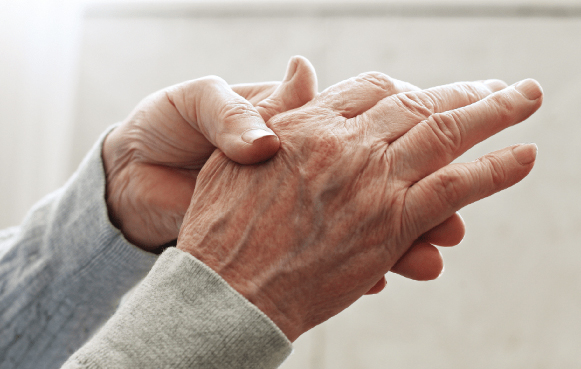As winter settles in, many people with arthritis find that their symptoms flare up, making the cold months feel even longer. Joint pain, stiffness, and swelling can seem more intense when the temperature drops. But why does winter worsen arthritis, and how can you manage your symptoms effectively during this time? At Bangalore Orthopaedic and Surgical Hospital, we’re here to break down the relationship between winter and arthritis pain, and offer strategies for managing it.
Why Does Winter Affect Arthritis Pain?
Arthritis, whether osteoarthritis (OA) or rheumatoid arthritis (RA), involves inflammation in the joints, which can result in pain and stiffness. Many people with arthritis report feeling worse during the winter months, and there are a few reasons for this:
1. Cold Temperatures
When the weather gets colder, blood vessels constrict to preserve body heat. This can reduce blood flow to the extremities, such as the fingers, toes, and knees. As a result, the joints can become stiffer, and muscles may tense up, increasing pain and discomfort. Cold temperatures can also make the nervous system more sensitive, heightening the perception of pain.
2. Changes in Barometric Pressure
Barometric pressure is the weight of the air around us. In winter, the drop in barometric pressure can cause tissues to expand, putting more pressure on the joints. This can lead to increased pain, especially in areas affected by arthritis. For some, this pressure can feel particularly intense during or before a cold front or storm.
3. Reduced Physical Activity
When it’s cold and dreary outside, it’s easy to become less active, but this can actually make arthritis worse. Reduced activity leads to stiff joints and weakened muscles, which can result in more pain. Movement helps to lubricate the joints and keep them flexible, so staying active is important, even in winter.
4. Increased Humidity
In some regions, winter brings higher humidity levels, which can contribute to joint swelling and stiffness. For people with arthritis, this combination of humidity and cold can make symptoms harder to manage.
How to Manage Arthritis Pain in Winter
While the cold weather can’t be avoided, there are plenty of ways to keep arthritis symptoms in check during winter months. Here are some strategies to help you feel your best:
1. Stay Warm
Keeping your body warm can help reduce joint stiffness. Dress in layers and make sure your joints are covered—especially your hands, feet, and knees. Thermal gloves, socks, and scarves can make a big difference. You might also find relief from using heating pads or taking warm baths to soothe achy joints.
2. Keep Moving
It’s important to stay active, even in winter. While outdoor activities might be less appealing in the cold, consider indoor exercises like yoga, swimming, or using a stationary bike. Stretching and strengthening exercises can help maintain joint mobility and prevent stiffness. If you’re unsure about which exercises are safe for your joints, it’s a good idea to consult a physiotherapist.
3. Stay Hydrated
Winter air, both outdoors and indoors, tends to be dry, and dehydration can make joint pain worse. Drink plenty of water, herbal teas, and warm soups to stay hydrated. Hydration helps keep the joints lubricated and can improve flexibility.
4. Pain Management
For many, arthritis pain requires regular management. Over-the-counter medications like NSAIDs (ibuprofen, aspirin) can help reduce inflammation and relieve pain. Topical creams with menthol or capsaicin can provide localized relief. For more severe pain, prescription medications or injections may be necessary, so speak with your doctor to find a pain management plan that works for you.
5. Diet and Supplements
An anti-inflammatory diet can be particularly helpful during winter. Foods rich in Omega-3 fatty acids, such as fatty fish, walnuts, and flaxseeds, can help reduce inflammation. Turmeric and ginger are also natural anti-inflammatories. If you’re considering supplements like glucosamine or chondroitin, check with your doctor before taking them.
6. Maintain a Healthy Weight
Excess weight puts added pressure on weight-bearing joints, like the knees and hips, which can exacerbate arthritis symptoms. A healthy, balanced diet and regular physical activity can help you maintain a healthy weight, reducing stress on your joints.
When to See a Specialist
While winter can exacerbate arthritis pain, there are many ways to manage the symptoms. However, if you find that your pain is not improving, or if it’s interfering with your daily activities, it’s important to seek professional advice. At Bangalore Orthopaedic and Surgical Hospital, our team of experts can help assess your condition and develop a personalized treatment plan to reduce pain and improve your quality of life.
Conclusion
Winter doesn’t have to mean unbearable joint pain. With the right approach, you can manage your arthritis symptoms and stay active and comfortable throughout the season. From staying warm to maintaining an active lifestyle and making healthier dietary choices, small adjustments can make a big difference in managing arthritis pain. If you need help navigating your arthritis care this winter, Bangalore Orthopaedic and Surgical Hospital is here to guide you every step of the way.
Contact us today to learn more about managing arthritis and schedule a consultation with one of our specialists. Let us help you make this winter your most comfortable yet.
Write By as – Dr K K Subbaiah instead of Bangalore orthopaedic and surgical Hospital

